Addition skills Numbers Worksheets for Ages 3-4
6 filtered results
-
From - To
Our Addition Skills Numbers Worksheets for Ages 3-4 are designed to make learning basic math both fun and effective. These engaging worksheets help young learners develop essential addition skills through colorful, interactive exercises. Perfect for preschoolers and early learners, each worksheet introduces numbers and basic addition concepts in an easy-to-understand format. By incorporating playful illustrations and simple problems, children are encouraged to practice addition in a way that keeps them interested and excited. Ideal for both classroom and at-home learning, these worksheets are a valuable resource for parents and teachers to support early math education.
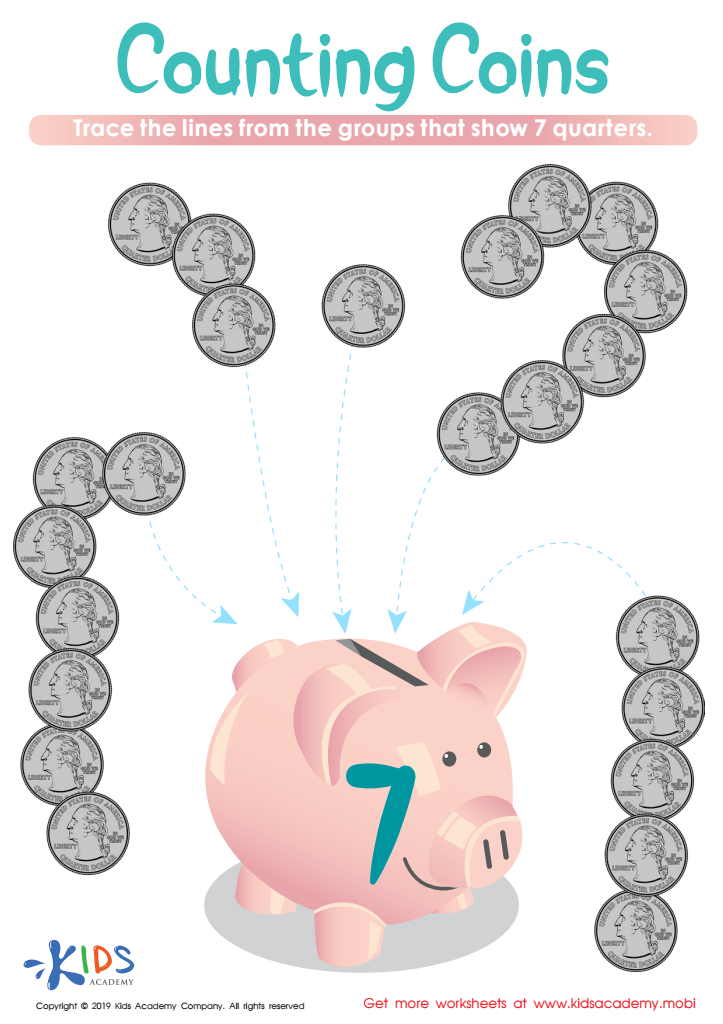

Counting Coins Worksheet
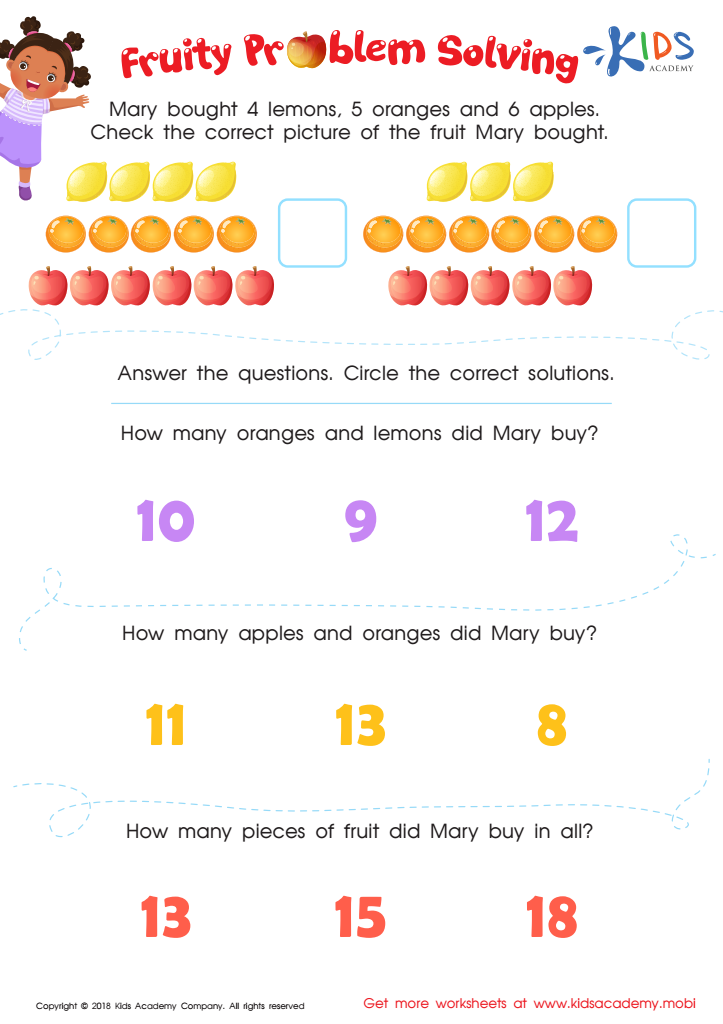

Fruity Problem Solving Worksheet
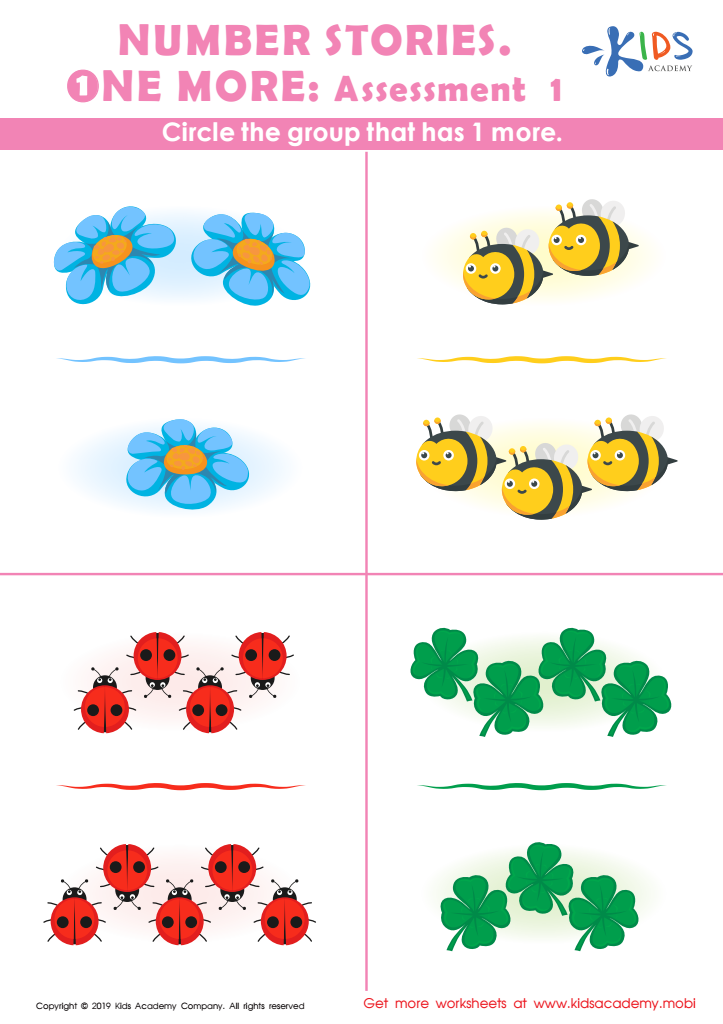

Number Stories One More – Assessment 1 Worksheet
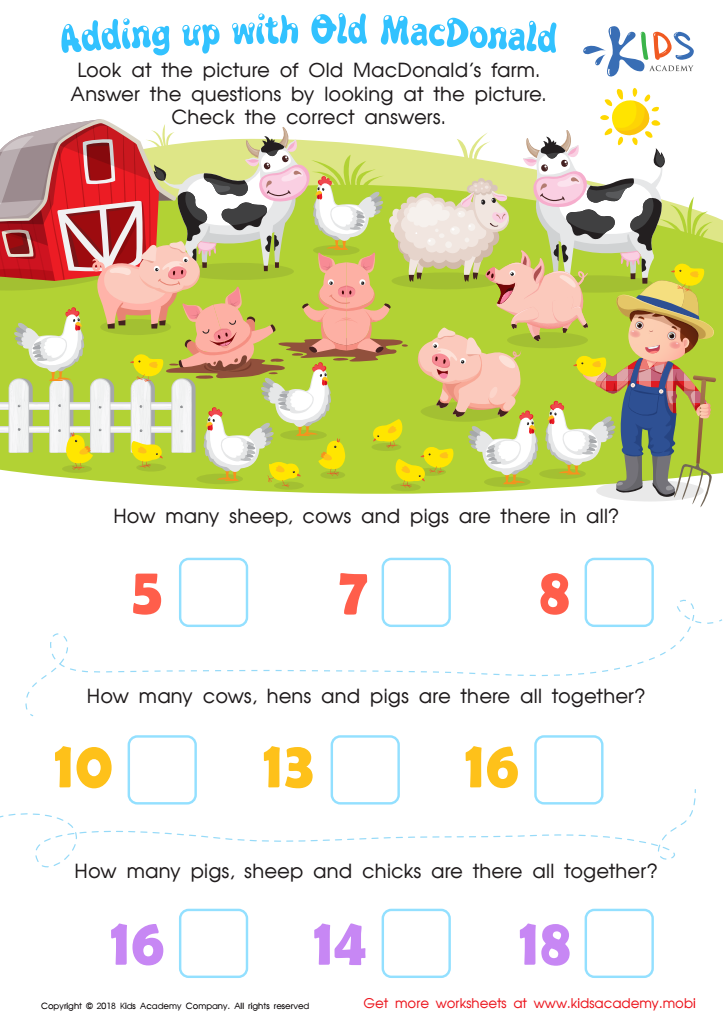

Adding Up with Old MacDonald Worksheet
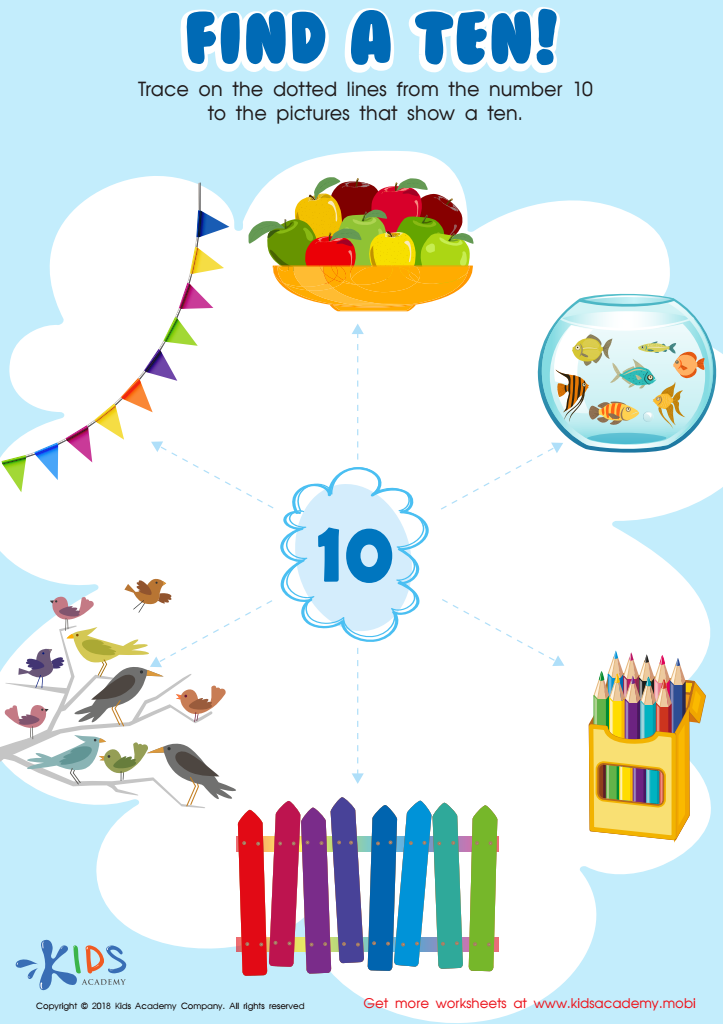

Kindergarten Math Worksheet: Find a Ten
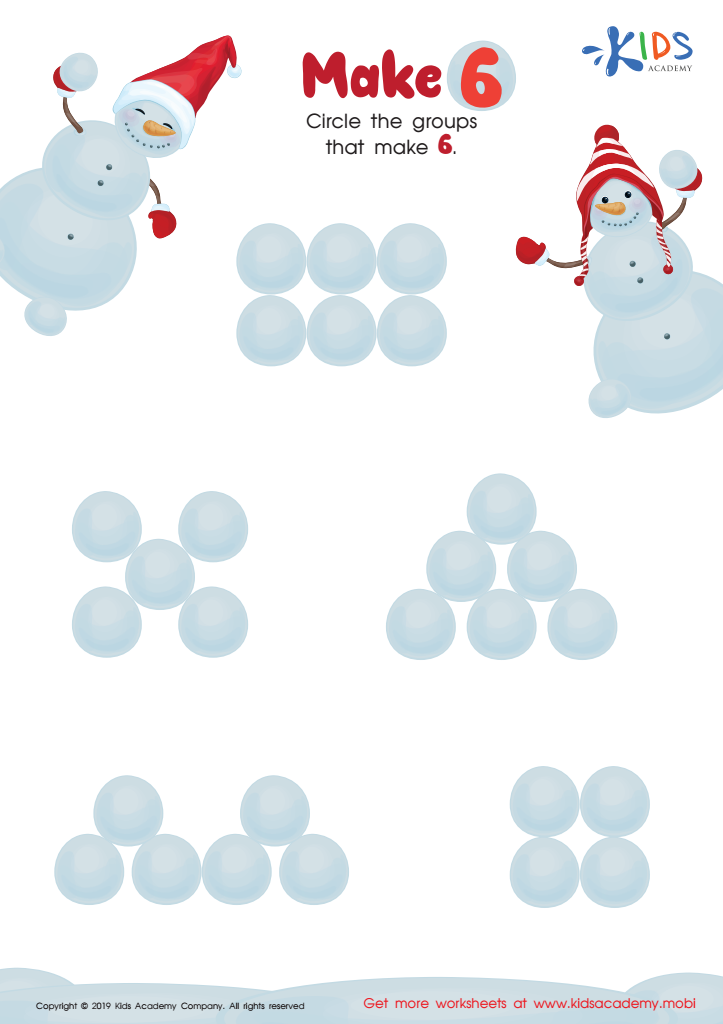

Make 6 Worksheet
Introducing addition skills to children ages 3-4 is crucial for several reasons. First, it lays the foundation for mathematical understanding and cognitive development. At this age, children are like sponges, readily absorbing new information. Teaching them the basics of addition helps them grasp essential mathematical concepts early on.
Additionally, early exposure to numbers and addition encourages curiosity and a love for learning. When children successfully solve simple addition problems, they experience a sense of accomplishment, which boosts their confidence. This positive reinforcement is key to fostering a lifelong interest in math and problem-solving skills.
Developing addition skills also enhances other areas of cognitive development, such as memory, attention, and logical thinking. For example, when children count objects to add them, they improve their ability to focus and follow sequences, which are essential skills in other academic areas like reading.
Moreover, early math skills are predictive of future academic success. Children who enter kindergarten with a solid grasp of basic math skills, including addition, are more likely to succeed not just in math, but across all subject areas. Thus, parents and teachers should prioritize the development of addition skills in young learners to set them on a path toward long-term academic success and confidence.
 Assign to My Students
Assign to My Students






















